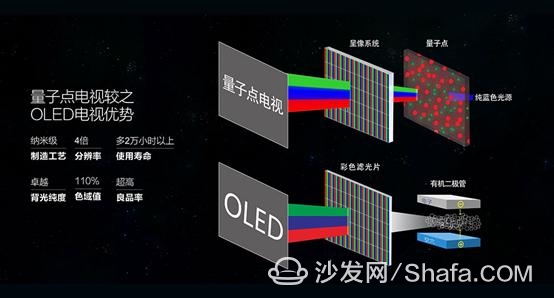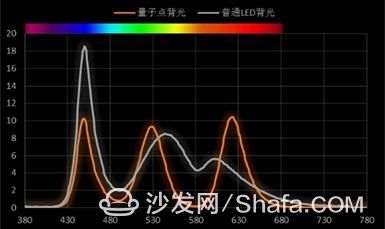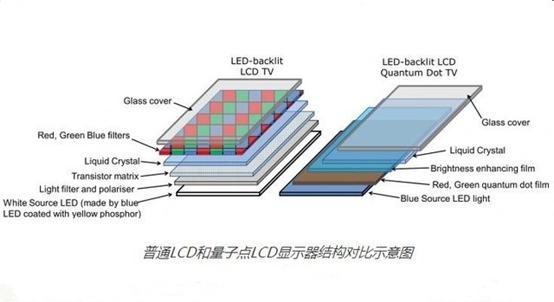Rack Mounted Line Interactive UPS Line Interactive UPS Shenzhen Unitronic Power System Co., Ltd , https://www.unitronicpower.com





Rack Mounted Line Interactive UPS Line Interactive UPS Shenzhen Unitronic Power System Co., Ltd , https://www.unitronicpower.com
The term "quantum dot screen" has recently gained a lot of attention, especially after the release of the LG G4. This technology is said to offer a wider color gamut, higher brightness, better contrast, and more accurate color reproduction than traditional IPS panels. In fact, it's making waves again in the TV industry, as Samsung has expressed strong interest in quantum dot technology, believing it could be the future of display innovation, rather than OLED.
But what exactly is quantum dot technology? And can it truly challenge the dominance of IPS and OLED screens that have long ruled the mobile and television markets?
 Quantum dots are tiny semiconductor particles, typically between 1 and 10 nanometers in size. When excited by light or electricity, they emit fluorescence at specific wavelengths. In display technology, quantum dots are used to enhance the backlight system of LCDs, creating purer and more vibrant colors.
Quantum dots are tiny semiconductor particles, typically between 1 and 10 nanometers in size. When excited by light or electricity, they emit fluorescence at specific wavelengths. In display technology, quantum dots are used to enhance the backlight system of LCDs, creating purer and more vibrant colors.
 LCD screens rely heavily on their backlighting system, which plays a crucial role in determining overall image quality. Quantum dot technology improves this by providing a more precise and pure light source, resulting in better color accuracy and brightness compared to conventional backlights.
LCD screens rely heavily on their backlighting system, which plays a crucial role in determining overall image quality. Quantum dot technology improves this by providing a more precise and pure light source, resulting in better color accuracy and brightness compared to conventional backlights.

 OLED screens have traditionally had an edge in color gamut, often exceeding 100% NTSC. However, quantum dot technology theoretically promises even wider coverage—up to 110% NTSC. Despite this, real-world tests show that the LG G4 only achieved around 82.37%, which, while impressive, still lags behind OLED performance.
OLED screens have traditionally had an edge in color gamut, often exceeding 100% NTSC. However, quantum dot technology theoretically promises even wider coverage—up to 110% NTSC. Despite this, real-world tests show that the LG G4 only achieved around 82.37%, which, while impressive, still lags behind OLED performance.
 In our testing, the LG G4 reached a peak brightness of 505 nits and a static contrast ratio of 1835:1—figures that place it among the top-tier displays of its time. While it performs well in terms of color gamut, brightness, and contrast, it hasn't yet surpassed the best IPS or OLED panels.
That said, quantum dot technology is still in its early stages. It may not have fully matured yet, but with major manufacturers like Samsung and LG investing heavily, we believe it has a bright future. As the technology advances and becomes more widely adopted, it could one day become a serious contender in the display market.
For more smart TV and box information, visit Smart TV/box information network sofa butler (http://), China's leading platform for smart TVs and TV boxes, offering news, reviews, software updates, and more. Stay updated with the latest trends in smart home technology.
In our testing, the LG G4 reached a peak brightness of 505 nits and a static contrast ratio of 1835:1—figures that place it among the top-tier displays of its time. While it performs well in terms of color gamut, brightness, and contrast, it hasn't yet surpassed the best IPS or OLED panels.
That said, quantum dot technology is still in its early stages. It may not have fully matured yet, but with major manufacturers like Samsung and LG investing heavily, we believe it has a bright future. As the technology advances and becomes more widely adopted, it could one day become a serious contender in the display market.
For more smart TV and box information, visit Smart TV/box information network sofa butler (http://), China's leading platform for smart TVs and TV boxes, offering news, reviews, software updates, and more. Stay updated with the latest trends in smart home technology.